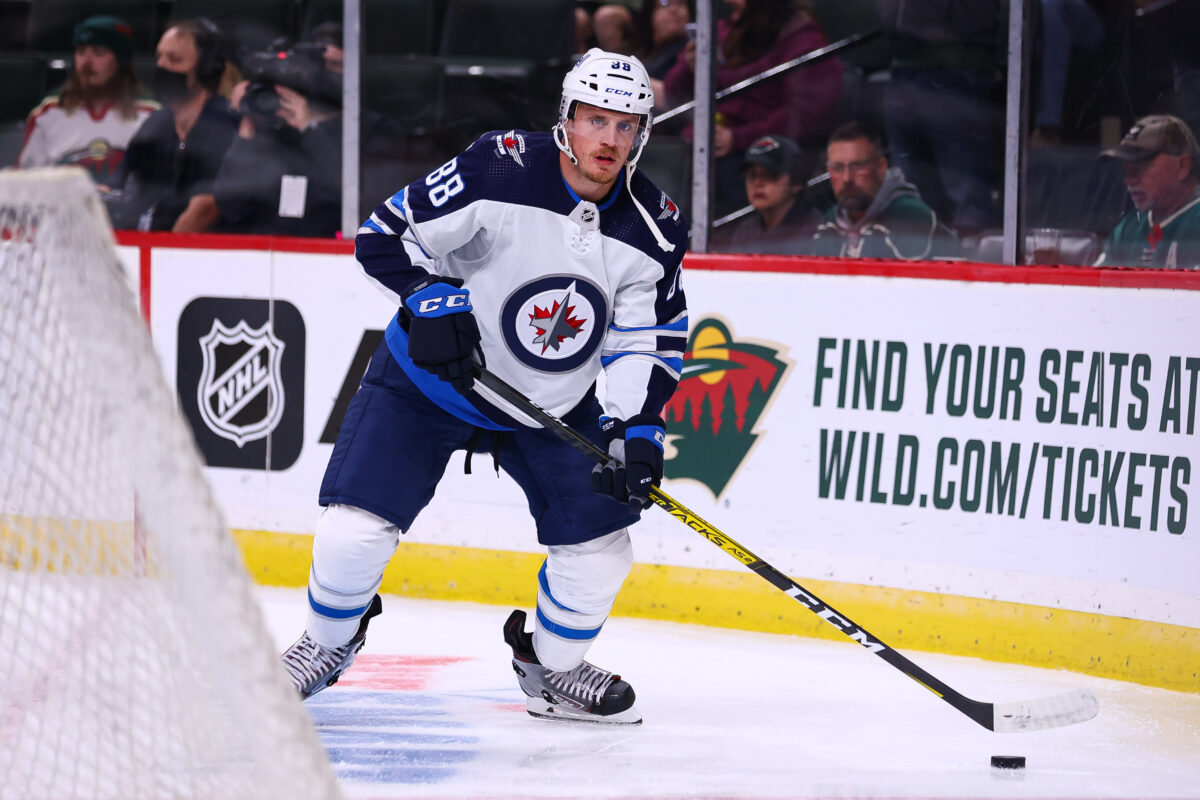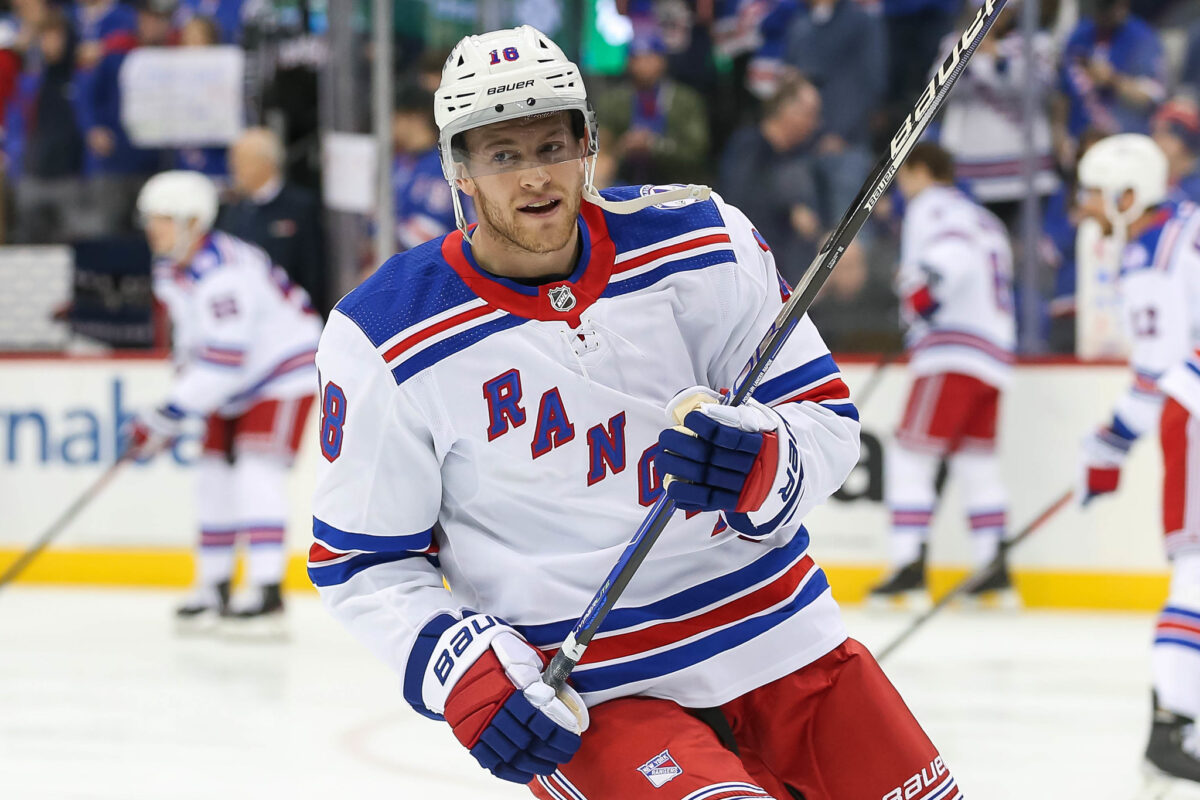The Winnipeg Jets named Kevin Cheveldayoff their general manager (GM) on June 8, 2011. Before that, he was the assistant general manager of the Chicago Blackhawks. He has had 11 seasons as GM and only one of his teams successfully made it past the second round of the playoffs. The Jets have also made the postseason only four times since their return to Winnipeg.
While it’s likely the Jets search for new coaching options this offseason, the changes should not stop there. Cheveldayoff’s time as the GM should soon be coming to a close. He’s currently the third-longest tenured in the NHL, behind the St. Louis Blues’ Doug Armstrong and Nashville Predators’ David Poile.
The plan he set out to accomplish, which he said was to make the Jets a “contender for years to come” is falling apart. They have been officially eliminated from playoff contention and will be heading into the offseason with more questions than answers.
A Change in Philosophy Last Offseason
How did the Jets end up here? For years, they relied on drafting and developing rookies to contribute on valued rookie deals. As a small-market team, they had no option but to rely on these cheap contracts to be able to compete. They developed for years and the finished product was the 2017-18 team, as Patrik Laine, Kyle Connor, and Nikolaj Ehlers were all on rookie contracts for that run to the Western Conference Final.
Cheveldayoff abolished that strategy when he committed $15.75 million to Neal Pionk, Nate Schmidt, and Brenden Dillon during the 2021 offseason. Pionk was a restricted free agent (RFA) and needed to be signed, but he then decided to trade two-second round picks and a third-round pick for Schmidt and Dillon. The better the internal prospects like Dylan Samberg and Ville Heinola look every time they get NHL action, the worse these trades look for Cheveldayoff.

Had the Jets stuck to the philosophy that carried them to their most playoff success since relocation, they would be in a much better state as a franchise right now. Before this season, Cheveldayoff was starting to show signs of mismanaging assets.
Related: Jets’ Dylan Samberg Should Be in the NHL in 2022-23
He traded a first-round pick for Kevin Hayes at the 2019 Trade Deadline, and later he was buried on Winnipeg’s fourth line in a first-round exit to the St. Louis Blues. In 2018, he had to trade away Joel Armia to the Montreal Canadiens to get rid of Steve Mason’s contract. In 2017, he used a first-round pick swap to protect defenceman Tobias Enstrom from the Vegas Golden Knights in the Expansion Draft, and the 13th overall pick that he traded away turned into the Canadiens’ star center Nick Suzuki. The very next season, Enstrom’s contract was up and he retired.
Jets’ 2022 Trade Deadline Emphasized the Issues
Buying has consequences. The Jets committed to Dillon and Schmidt for the long term, and as a result of having no cap space to pay him this offseason, Andrew Copp ended up on the New York Rangers. Copp has skyrocketed offensively, scoring 18 points in 15 games since being traded. The 27-year-old, versatile top-six forward has had success playing with Artemi Panarin on the Rangers’ top forward line. While he was a factor in the Jets’ success over the past two seasons, clearly he could have been a bigger factor, based on the production he’s now having with the Rangers.
Copp is an unrestricted free agent (UFA) this offseason, leaving the door open for a bidding war on the open market. Along with the defensive side of his game, Copp has developed into a valuable offensive player scoring 21 goals this season. He scored 15 goals last season but likely would have hit the 20-goal mark had the NHL played a full season.

After selling multiple assets at the deadline, Cheveldayoff then acquired Mason Appleton back from the Seattle Kraken, and Zach Sanford from the Ottawa Senators, in what was an attempt to make the playoffs. That plan backfired, with the Jets’ current record of 35-33-11, and recent elimination from playoff contention. Appleton is an RFA and likely retainable in the offseason, but the addition of Sanford remains a head-scratcher. The 27-year-old winger is a UFA this offseason, making his departure all but certain. He has recorded three points in 15 games as a Jet and hasn’t been able to find chemistry alongside Appleton and Adam Lowry.
Jets Should Begin to Explore General Manager Options
Regardless of what the Jets’ offseason plans are, they need to be executed by a new GM from outside the organization. They cannot repeat the mistake that they made with the coaching staff, having promoted from within and keeping the same strategies in place just from a new voice. New voices, strategies, and philosophies have to be implemented into the Jet’s front office this offseason.
It is a crucial time for the Jets. Attendance is starting to slip, players are starting to question effort levels in the locker room, and a new coach may or may not be taking over the team starting next season. Big changes have to be made to the core this offseason, and it seems as though Cheveldayoff is committed to the current one. If the Jets want to return to the playoffs and see attendance start to rise again, they are going to have to make major changes, and that movement has to come from an outside source.